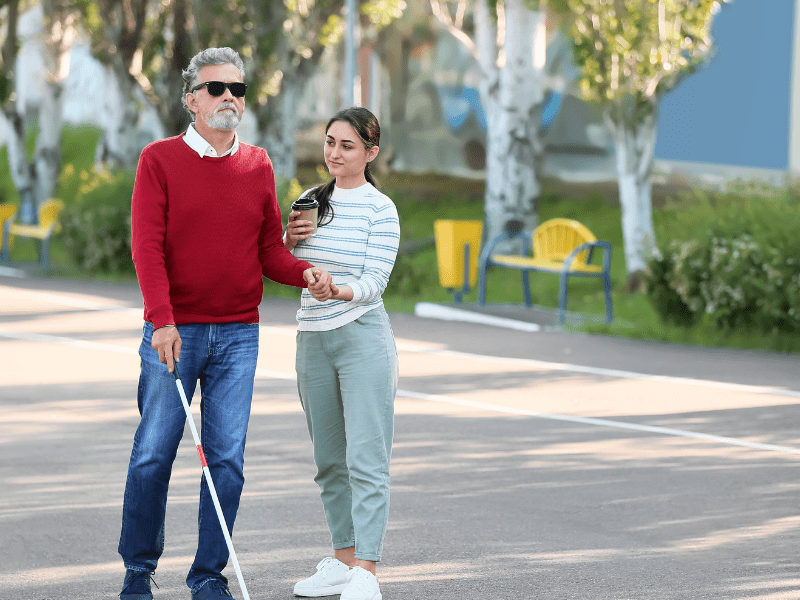If your loved one has low vision or blindness, we can help. The professionals at Caring Family provide home care support tailored to the individual’s needs, offering great relief to families. We come to you with sound advice on how to remove the barriers your loved one experiences daily.
Our goals within the home of a visually impaired person include:
- Adaptive and assistive items: obtaining and training
- Household organization
- Kitchen and bath safety
- Labeling items in braille or extra-large lettering
- Orientation within the home; mobility within the community
- Personal care requirements
- Taking care of chores
And anything else that can improve the quality of life, while respecting a person’s dignity and watching out for their well-being. Most solutions aren’t complex, but the difference in the way your loved one feels will be substantive. Having a positive outlook is half the battle.
The Comfort of Home
There is an understandable sense of insecurity that comes with losing your vision. It happens to people of all ages, but nearly half of the people in the United States are over the age of 65. Senior citizens show a preference for staying at home and receiving care there, rather than going into assisted living. It’s familiar and they’re not surrounded by strangers.
Not all families have the option of being with their loved ones 24-7, ensuring they’re safe and happy. That’s where Caring Family Health home care services in Allentown and Philadelphia, PA steps into the gap. Our staff follows important protocols when working with your senior, many of which you can try, too. We:
- Announce when touching a person. We always get permission because some people are very sensitive about personal space. Boundaries matter.
- Assisting with any current blindness training.
- Explaining noises or extended silence
- Finding alternative sensory input like playing music, or reading a book to them.
- Listen closely to the person’s requests and needs. Communication is essential to building trust.
- Maintaining the continuity of items in the home in a conscientious manner. Individuals will get to know where things are so long as items remain in the same spot.
- Providing precise instructions (pointing doesn’t work!)
- Speak to them directly, using their name at the start of a sentence. Since the person cannot see the aide, this signals that a conversation is aimed at them.
Keeping it Real
It is normal for you to want to do everything for your loved one with visual impairment but don’t. Let them ask for help. This stresses an all-important sense of individuality. When they do ask for assistance inquire as to whether they’d like help with the same thing again in the future. You can create a list. People will welcome practical help.
Having a professional caregiver helps you overcome some of the hurdles both your loved one and family face. There are many benefits to having an aide service, not the least of which is peace of mind. You know your loved one is in good hands. They know they have extra help, specifically “eyes” on the situation.
If you’d like to learn more about home health care and/or skilled nursing, don’t hesitate to call us. Email our coordinator at coordinator@caringfamily.com or call 844.818-0039.





